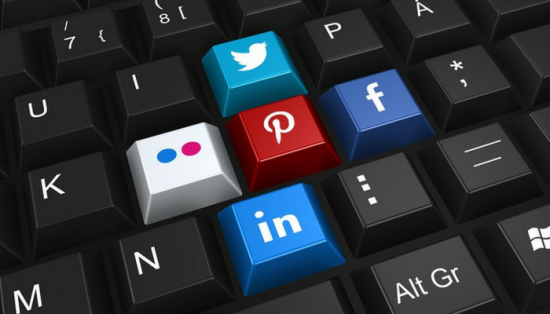
Online quizzes are all the rage on social media and on popular websites like Buzzfeed, Zimbio, Sporcle and many more. In fact, Buzzfeed’s top 50 most popular quizzes brought in an average of 3 million online engagements in March 2017. While it’s all fun and games, are you aware of the security implications that these online quizzes may bring?
Security Implications for Online Quizzes?
 These online quizzes may pose a potential security threat to your online profiles and personal information. Sharing what you consider to be harmless may not be so harmless when you start thinking about the different ways that hackers can exploit this private information. In a particularly frightening example, scammers were using a popular Facebook quiz to try and guess users’ login security questions. Considering that the average person has around 25 different online accounts that require passwords, it would make sense that most security questions you set up would be answered in the same way. In theory, the answers to your security questions are meant to just be known by no one else but yourself. Nonetheless, in such a case, being honest and truthful to the set questions might actually work against your favor.Just as it is with other social engineering techniques, these online quizzes serve as a gateway for hackers to gain access to your private information and online profiles in a more intuitive way. Given the popularity of online quizzes, especially those shared on Facebook, the privacy of online users may be at risk.And of course it’s not just security answers that hackers are after, hackers are also using online quizzes to launch scams for “farming Likes,” which switch out a viral post with a malicious link after its popularity has gone up. In other instances, some quizzes ask for credit card information after offering a reward for taking the quiz, which is worrisome because the original poster could potentially misuse your financial information.
These online quizzes may pose a potential security threat to your online profiles and personal information. Sharing what you consider to be harmless may not be so harmless when you start thinking about the different ways that hackers can exploit this private information. In a particularly frightening example, scammers were using a popular Facebook quiz to try and guess users’ login security questions. Considering that the average person has around 25 different online accounts that require passwords, it would make sense that most security questions you set up would be answered in the same way. In theory, the answers to your security questions are meant to just be known by no one else but yourself. Nonetheless, in such a case, being honest and truthful to the set questions might actually work against your favor.Just as it is with other social engineering techniques, these online quizzes serve as a gateway for hackers to gain access to your private information and online profiles in a more intuitive way. Given the popularity of online quizzes, especially those shared on Facebook, the privacy of online users may be at risk.And of course it’s not just security answers that hackers are after, hackers are also using online quizzes to launch scams for “farming Likes,” which switch out a viral post with a malicious link after its popularity has gone up. In other instances, some quizzes ask for credit card information after offering a reward for taking the quiz, which is worrisome because the original poster could potentially misuse your financial information.
Fraudulent Use of Personal Information
The reality is that it’s not just online quizzes like the ones that pop up on your feed that can expose you to hackers. Any kind of personal information you share online can be used fraudulently. An exposé by The Atlantic emphasizes this point to a T: “On the internet, anything you do is like taking a personality quiz: Everywhere you click reveals something about you. And you’re not the only one who sees the results…when algorithms can be trained to accurately infer your personality the internetis a personality quiz.”
So What Can You Do To Protect Yourself?

- Limit what you share online. Social engineering has come a long way, and social media is making it easier for hackers to gain your trust.
- Review your privacy settings. Social media platforms are constantly introducing new features and updating their privacy policies, so make sure you are periodically reviewing who can see your personal information or public profile.
- Learn about the different types of scams online. What you may consider harmless fun like answering a quiz may actually pose a security threat. Stay up-to-date with the changing data security trends by following security blogs.
As we celebrate Data Privacy Day, it’s important to remember that we don’t really have much oversight over what data we’re sharing, if we’re unaware of how our data is used. Underestimating hackers’ creativity in extracting your data from all kinds of web activity is what causes users to click on malicious links on social media sites, thinking they are benign, in the first place. Being mindful of what personal information we choose to include in our public profiles can help prevent our information from being exploited by hackers. For more tips, make sure to get the latest updates from the sponsors of Data Privacy Day. It’s not too late to sign up as a champion!





